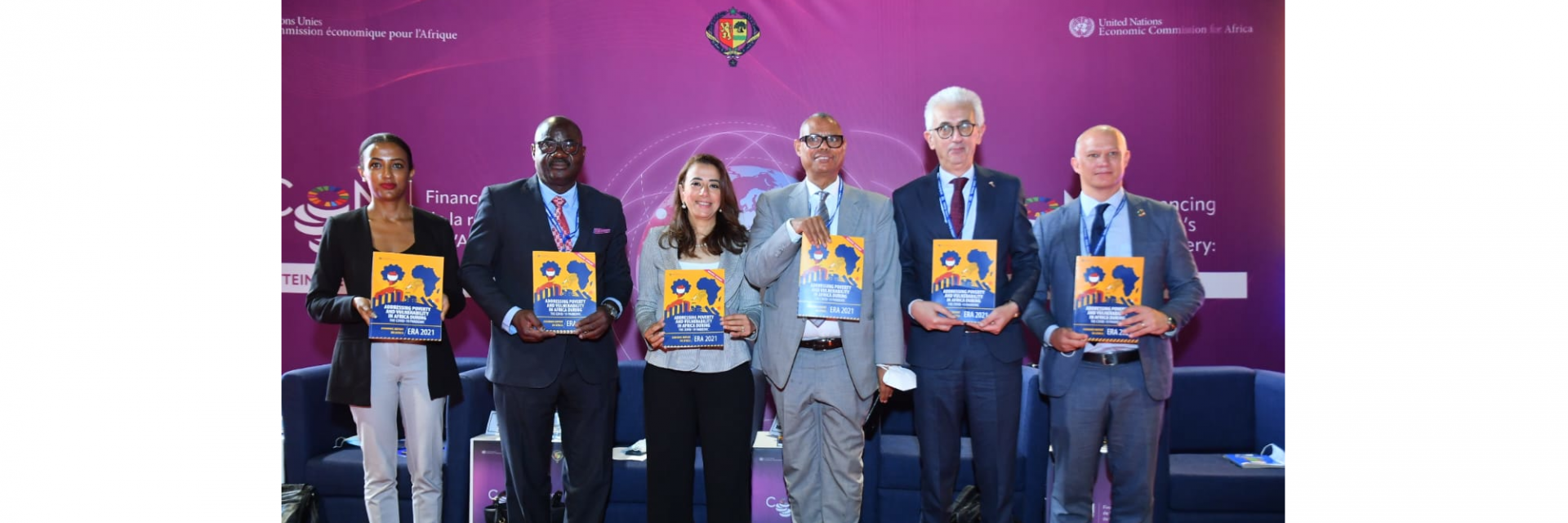Dakar, Senegal, 15 May 2022 (ECA) - The disruptions caused by the COVID-19 pandemic pushed an estimated 55 million Africans into extreme poverty in 2020 and reversed more than two decades of progress in poverty reduction on the continent.
This is according to the Economic Report on Africa 2021(ERA2021) launched today on the margins of the Economic Commission for Africa’s annual Conference of Ministers of Finance, Economic Planning and Development (CoM2022) in Dakar, Senegal.
Titled: “Addressing Poverty and Vulnerability in Africa during the COVID-19 Pandemic”, the report shows that pandemic has caused job losses, reduced income and further limited the ability of households to manage risks. An estimated 12.6 per cent more people are likely to be pushed into poverty in one year alone more than the combined total of the additional poor since 1999.
Furthermore, poor households move into and out of poverty because of exogenous shocks like the COVID-19 pandemic and their inability to manage uninsured risks only increases their vulnerability. Achieving sustained poverty reduction, therefore, requires a thorough understanding of the nexus between poverty, risks and vulnerability.
“Under current projections, the pandemic is likely to increase the number of people living in extreme poverty, in Africa and globally,” says the report.
Hanan Morsy, ECA’s Deputy Executive Secretary and Chief Economist at the ECA said the report analyses the implication of COVID-19 in terms of poverty but brings a new dimension stressing the vulnerability in Africa. It brings the element of people centric analysis of what has been happening during COVID-19 and what we need to do to ensure that the vulnerable population are protected in terms of social safety net and putting up the right policies.
“This report is particularly relevant given the most critical implication of COVID-19, which has been the reversal of the very hard-won gains that the continent had managed to achieve in reducing poverty,” said Ms Morsy.
While presenting the key findings of the report, Adrian Gauci, an Economic Affairs Officer at ECA said African countries responded to the poverty effects of the COVID-19 pandemic in part through expansionary fiscal and monetary policies to maintain consumption and aggregate demand and prevent firm closures and job losses.
“A major contribution of the report is the emphasis on the centrality of risk and vulnerability to shocks in the design of poverty reduction strategies in Africa,” said Mr Gauci.
The report calls for “an urgent need to explore innovative and affordable insurance schemes including strategic market-led initiatives which can insure the poor from future shocks. It notes that collaboration between governments and the private sector is paramount.
The African Continental Free Trade Area (AfCFTA), the report says, is an opportunity to build forward better. Most African countries still depend on exports of raw materials and on imports of essential goods such as food items and pharmaceuticals.
“The AfCFTA would help Africa industrialize and diversify, reducing trade dependence on external partners and boosting the share of intra-Africa trade from roughly 15 per cent today to over 26 per cent.”
The report recommends that African governments should adopt targeted social protection measures; provide short-term social assistance to the most vulnerable people; and ensure health protection for all.
Over the longer term, African countries need to build resilience by investing in health protection for all, which also offers high potential for employment creation; Build a national and regional health emergency preparedness and response system for future pandemics; Build domestic capacity for vaccine production through initiatives such as the Partnerships for African Vaccine Manufacturing; Leverage the African Continental Free Trade Area and other Africa-wide initiatives to create decent jobs and reduce poverty.
The report was produced by ECA’s Strategic Planning, Oversight and Results Division; the Gender, Poverty and Social Policy Division; and the Macroeconomic and Governance Division.
For more in-depth analysis and a multimedia overview, click here: https://www.era-report.org
Issued by:
Communications Section
Economic Commission for Africa
PO Box 3001
Addis Ababa
Ethiopia
Tel: +251 11 551 5826
E-mail: eca-info@un.org

